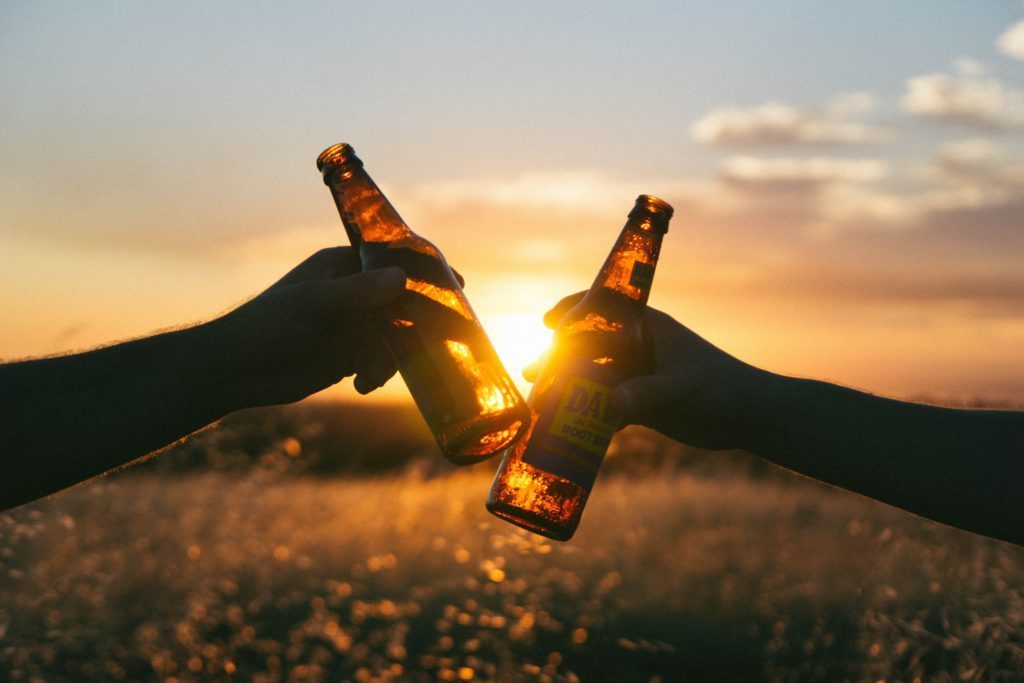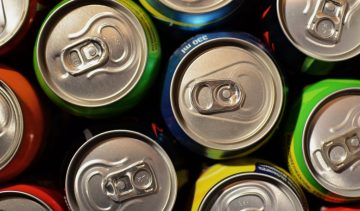When do you drink too much alcohol and what effect does that have on you? And if you drink too much, how can you reduce your drinking? Because is alcohol really that harmful?
According to the Trimbos, someone drinks excessively at more than 21 glasses per week for men and more than 14 glasses per week for women. Yet it is not that simple, the moment when it gets too much is different for every person. You could also say that if you experience side effects, you drink excessively in your case. Think of poor sleep after alcohol intake, often suffering from headache or when you start to forget things. It is of course best not to drink alcohol at all.
Gloomy or anxious? This is what alcohol does with your complaints
Alcohol problems are often accompanied by mental disorders. People often drink alcohol because they are gloomy or anxious. Alcohol causes someone to become gloomy, to feel anxious and to become more tense. However, this does not happen immediately, because as you may know it often feels good on the day itself. For example, you feel more brave and energetic. You only feel the negative effect the days after alcohol consumption. When you start treatment for your symptoms, you are also usually required to stop using alcohol (temporarily). This way you find out which complaints arise from alcohol consumption and which are caused by other factors. In addition, there is a greater chance that symptoms will decrease faster and you will therefore benefit more from your treatment.
This is how your body processes alcohol
You arrive from alcohol. Alcoholic drinks often contain a lot of calories! To give an example, five glasses of beer are based on the average number of calories of an evening meal. In addition, when you drink alcohol your body will first process the alcohol. This means there is less time for burning, for example, sugars and carbohydrates. Alcohol consumption even lowers your fat burning. Suppose you enjoy a cheese platter with a glass of wine, so the cheese platter arrives twice as hard. Without wine, your body starts burning the sugars and carbohydrates in the cheese much earlier.
Your liver takes about 1.5 hours to process one standard glass of alcohol. This means that if you drank eight glasses of alcohol one evening, your body takes twelve hours to process this. There is a good chance that you will still be under the influence the next morning, which means that you are not allowed to drive a car.
Many people use alcohol to sleep better. But nothing less is true! Alcohol ensures that you fall asleep quickly, but also that you recover much less during your sleep. You will therefore wake up more rested without alcohol consumption, even though it will take longer for you to fall asleep.
Alcohol also has a narcotic effect. It actually slows down your bodily functions. Ultimately, this will cause your heart rate and breathing to fall with the risk of unconsciousness or to stop breathing and heart rate. 2.8 million world citizens die each year from the effects of harmful alcohol consumption (Kypri & McCambridge, 2018).
How harmful is alcohol?
Alcohol can cause liver fat and eventually the formation of scar tissue on the liver, causing it to no longer function properly. It also causes brain damage. With a daily drink of six glasses of alcohol, the loss of brain tissue can already be clearly seen. Alcohol consumption increases the risk of bleeding from the brain, heart problems, breast, throat, oral cavity, esophagus and liver cancer, kidney failure, stomach ulcers, diabetes, Alzheimer’s disease and infectious diseases.
If you drink alcohol regularly, there is a good chance that you will get a vitamin B1 deficiency. It is therefore strongly recommended to supplement this with vitamin B1 or B-complex pills (high dose). You can simply buy this at the drugstore! Consequences of this vitamin deficiency are, for example, depression, irritability, low energy, concentration problems, stimulation in hands and feet, poor sleep and ultimately Korsakov’s disease.
How do you deal with alcohol consumption?
Alcohol seems to be a very accepted means in our society, which apparently has many negative sides. It gives the impression that some people would rather not see these sides. Yet it seems that people are becoming more aware of the harmful effects of alcohol. More and more people are taking an “alcohol-free month” or switching to alcohol-free beer or wine and find that they feel much better about it. Give it a try and see what it does to you! Are you unable to reduce or stop your alcohol consumption? There is enough help available and you are not the only one who needs help.










